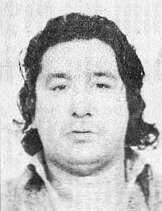A Quote by Frederick Lenz
We are trying to do our best to bring perfection into whatever we turn our attention to.
Related Quotes
We are consumed by safety. Obsessed with it, actually. Now, I’m not saying it is wrong to pray for God’s protection, but I am questioning how we’ve made safety our highest priority. We’ve elevated safety to the neglect of whatever God’s best is, whatever would bring God the most glory, or whatever would accomplish His purposes in our lives and in the world.
Unexplained pain may sometimes direct our attention to something unacknowledged, something we are afraid to know or feel. Then it holds us to our integrity, claiming the attention we withhold. The thing which calls our attention may be a repressed experience or some unexpressed and important part of who we are. Whatever we have denied may stop us and dam the creative flow of our lives. Avoiding pain, we may linger in the vicinity of our wounds, sometime for many years, gathering the courage to experience them.
Our divine perfection - not registered by the physical eye but only by the heart’s knowing - is who we truly are. Our mortal imperfections - registered by the physical senses - are not who we truly are. Yet we keep trying, in love, to find each other’s perfection within the world of imperfection. And it simply is not there.
Now we cannot...discover our failure to keep God's law except by trying our very hardest (and then failing). Unless we really try, whatever we say there will always be at the back of our minds the idea that if we try harder next time we shall succeed in being completely good. Thus, in one sense, the road back to God is a road of moral effort, of trying harder and harder. But in another sense it is not trying that is ever going tobring us home. All this trying leads up to the vital moment at which you turn to God and say, "You must do this. I can't.
We usually do pay attention to our outer appearance, typically noticing whatever part of our bodies we are unhappy about. It behooves us, however, to get on very good terms with more than just the surface of our bodies as we grow older; for if we don't listen to our bodies and pay attention to our physical needs and pleasures, this vehicle that we need to be running well to take us into a long and comfortable life, will limit what we can do and who we become.
The stress that we [with Abilities] always feel is trying to continue advancing with our music. That's our plight, it's ingrained in our personalities. We feel like we're trying to race the world of music itself - just trying to create the best music, and as soon as we get done with one piece we're trying to figure out how to top it.

































